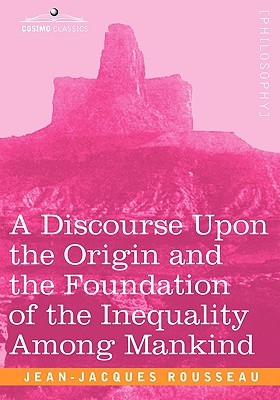
- We will send in 10–14 business days.
- Author: Jean Jacques Rousseau
- Publisher: Cosimo Classics
- Year: 2008
- Pages: 64
- ISBN-10: 1605203696
- ISBN-13: 9781605203690
- Format: 17.8 x 25.4 x 0.3 cm, minkšti viršeliai
- Language: English
- SAVE -10% with code: EXTRA
A Discourse Upon the Origin and the Foundation of the Inequality Among Mankind (e-book) (used book) | bookbook.eu
Reviews
Description
[F]rom the moment one man began to stand in need of another's assistance; from the moment it appeared an advantage for one man to possess the quantity of provisions requisite for two, all equality vanished; property started up; labour became necessary; and boundless forests became smiling fields, which it was found necessary to water with human sweat, and in which slavery and misery were soon seen to sprout out and grow with the fruits of the earth. -from "Second Part" Was man better off before he invented "civil society"? From where does social inequality spring? Did the development of agriculture and technology doom most of humanity to an everlasting enslavement to the tiny minority of the wealthy and the strong? This 1754 essay, written in response to concepts of the "natural man" developed by philosopher Thomas Hobbes, explores such ideas, radical at the time and still considered such today. Rousseau's thoughts continue to be echoed, however, in modern philosophical movements from feminism to environmentalism, and ensure that his examination of the history of human civilization, in its broadest sense, remains vital today. Swiss philosopher JEAN-JACQUES ROUSSEAU (1712-1778) was a dramatic influence on the French revolution, 19th-century communism, the American Founding Fathers, and much modern political thought. His works include Discourse on the Arts and Sciences (1750), Discourse on Political Economy (1755), and The Social Contract, Or Principles of Political Right (1762).
- Author: Jean Jacques Rousseau
- Publisher: Cosimo Classics
- Year: 2008
- Pages: 64
- ISBN-10: 1605203696
- ISBN-13: 9781605203690
- Format: 17.8 x 25.4 x 0.3 cm, minkšti viršeliai
- Language: English English
[F]rom the moment one man began to stand in need of another's assistance; from the moment it appeared an advantage for one man to possess the quantity of provisions requisite for two, all equality vanished; property started up; labour became necessary; and boundless forests became smiling fields, which it was found necessary to water with human sweat, and in which slavery and misery were soon seen to sprout out and grow with the fruits of the earth. -from "Second Part" Was man better off before he invented "civil society"? From where does social inequality spring? Did the development of agriculture and technology doom most of humanity to an everlasting enslavement to the tiny minority of the wealthy and the strong? This 1754 essay, written in response to concepts of the "natural man" developed by philosopher Thomas Hobbes, explores such ideas, radical at the time and still considered such today. Rousseau's thoughts continue to be echoed, however, in modern philosophical movements from feminism to environmentalism, and ensure that his examination of the history of human civilization, in its broadest sense, remains vital today. Swiss philosopher JEAN-JACQUES ROUSSEAU (1712-1778) was a dramatic influence on the French revolution, 19th-century communism, the American Founding Fathers, and much modern political thought. His works include Discourse on the Arts and Sciences (1750), Discourse on Political Economy (1755), and The Social Contract, Or Principles of Political Right (1762).


Reviews